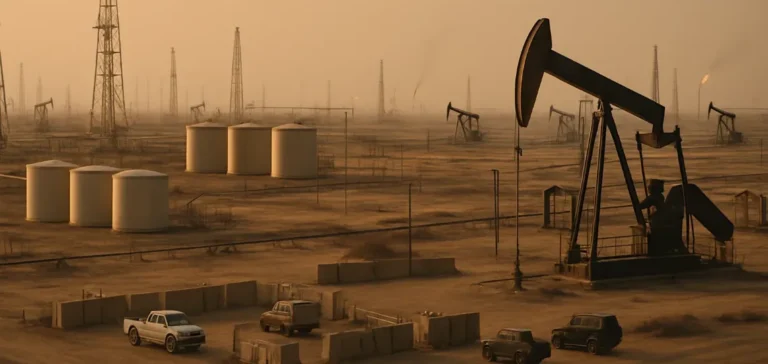Several major international energy companies operating in Iraq have taken preventive measures by reducing their on-site personnel following recent military strikes targeting Iranian nuclear facilities, according to information published by Reuters and TASS on June 23.
Eni confirms partial evacuation
The Italian group Eni has reduced its presence at the Zubair oil and gas field, located in southern Iraq, according to a spokesperson quoted by Reuters. This decision is part of a series of precautions adopted by various foreign companies in the region following joint strikes carried out by the United States and Israel against strategic sites in Iran. These strikes represent the largest Western military operation against Iran since the Islamic Revolution of 1979. Eni’s spokesperson specified that the company maintains close monitoring and ongoing cooperation with regional authorities.
Lukoil remains operational according to Basra Oil
Conversely, Russian company Lukoil has opted not to evacuate its personnel, as officially confirmed by Basra Oil Company, an Iraqi state-owned company responsible for managing several oilfields in the southern part of the country. In its statement posted on its official Facebook page, Basra Oil explicitly states that “Lukoil has not evacuated its personnel, and all its employees continue their work on the fields.” The company also clarified that evacuations by other foreign energy companies have thus far had no impact on production volumes.
BP and TotalEnergies also concerned
British oil major BP and French company TotalEnergies have also carried out partial evacuations, following similar precautions to Eni, according to Basra Oil Company. However, the two companies have not provided specific details on the exact number of their employees affected by these measures. Chevron, also active in the region, declined to specifically comment on the situation, merely reiterating its absolute priority concerning the safety of its personnel and facilities.
Oil production unchanged
Despite these precautionary measures, Basra Oil Company indicated that oil production operations in the affected fields continue normally. These fields, notably Zubair, represent strategic assets essential to the Iraqi economy. Future developments will therefore be closely monitored by global oil industry players due to their potential implications for international energy markets.






















